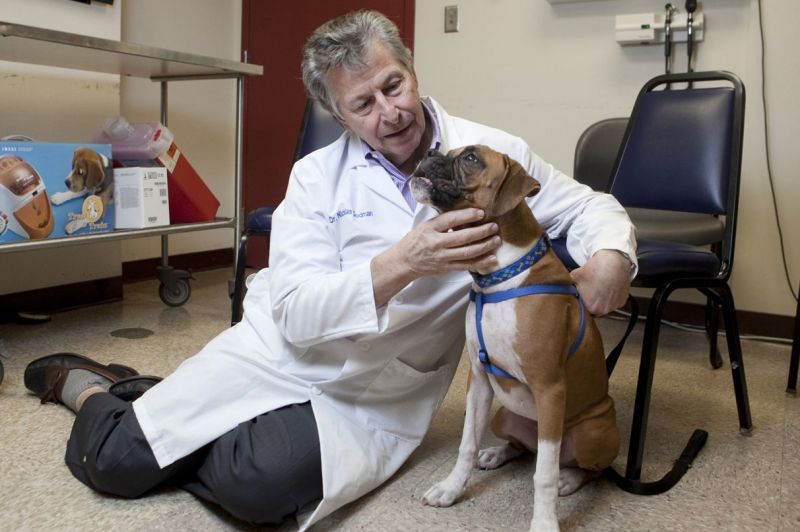Do you need a cat behaviourist near me? Signs your cat may require one
Comprehending the Role of a Vet Behaviourist in Animal Training and Health
The duty of a veterinary behaviourist is important in dealing with the complex relationship between family pets and their proprietors. They combine vet medicine with insights from pet habits scientific research to deal with concerns like hostility and anxiety. Unlike typical fitness instructors, their technique concentrates on the underlying sources of these habits. This nuanced point of view questions about the efficiency of traditional training approaches and how a deeper understanding can transform pet health. What strategies do they use to attain these results?
What Is a Vet Behaviourist?
A veterinary behaviourist is a specialized professional that focuses on understanding and attending to the behavior concerns of pets, especially family pets. Their expertise integrates vet medicine and pet behavior scientific research, enabling them to diagnose and deal with a wide array of behavior troubles - canine behaviourist near me. These professionals commonly hold postgraduate degrees, such as a Master's or PhD in pet actions, and are certified by relevant companies, ensuring they have a deep understanding of animal psychology
Veterinary behaviourists examine pets via detailed observation and analysis, taking into consideration elements such as genes, atmosphere, and training background. They create tailored therapy strategies, which may include desensitization strategies, favorable reinforcement strategies, and environmental adjustments. Collaboration with family pet proprietors is essential, as they give guidance and support throughout the training procedure. Eventually, the objective of a vet behaviourist is to improve the wellness of the animal while promoting a harmonious connection in between family pets and their owners.
The Relevance of Recognizing Pet Actions
Recognizing animal actions is important for both pet proprietors and specialists in the area of pet care, as it lays the foundation for reliable interaction and training. Identifying how animals regard their setting and respond to stimuli makes it possible for caregivers to create an extra unified living situation. Insight right into behavior cues, such as body language and articulations, promotes more powerful bonds between animals and their proprietors. By valuing the all-natural instincts and needs of different types, individuals can tailor their training approaches to suit these factors, advertising far better understanding and cooperation. In addition, a solid grasp of behavioral science help in recognizing stress factors and potential triggers, permitting for aggressive treatments. Generally, comprehending animal actions not only improves the wellness of animals but additionally enriches the experiences of those that look after them, ultimately causing much healthier, happier partnerships.
Usual Behavioral Issues Attended To by Vet Behaviourists
Veterinary behaviourists often address common behavioral concerns in pet dogs, including aggressiveness and worry reactions. They additionally concentrate on anxiousness and tension management, which can significantly influence a pet's well-being. Comprehending these problems is necessary for establishing reliable training and intervention strategies.
Hostility and Concern Reactions
While several animal proprietors might check out aggressiveness and concern feedbacks as easy behavior issues, these intricate reactions commonly come from underlying anxiety or past trauma. Vet behaviourists play an important function in identifying the origin triggers of these habits, which can show up in different forms, consisting of growling, attacking, or extreme fear of certain circumstances. Understanding these triggers is crucial for creating reliable training techniques customized to every family pet's distinct conditions. Behaviourists use techniques such as desensitization and counter-conditioning to aid pet dogs handle their anxieties and hostility. Furthermore, they educate animal owners about proper monitoring techniques, highlighting the value of patience and uniformity. Addressing aggression and anxiety reactions not only improves the pet's lifestyle however likewise reinforces the bond between animal and owner.
Anxiousness and Tension Monitoring
Anxiousness and stress prevail concerns that numerous family pets face, commonly arising from adjustments in their atmosphere, absence of socialization, or previous negative experiences. Vet behaviourists play a crucial function in recognizing the underlying sources of these issues. They utilize different methods, including behavioral adjustment, desensitization, and counter-conditioning, to assist animals manage anxiousness. Additionally, they may suggest environmental changes, such as producing risk-free areas or providing enrichment activities that advertise leisure. Collaboration with family pet proprietors is vital, as behaviourists guide them in understanding their animal's signals and executing reliable coping methods. By addressing stress and anxiety and anxiety, vet behaviourists contribute significantly to improving the general well-being and top quality of life for pet dogs and their family members.
Exactly How Vet Behaviourists Vary From Typical Trainers
Vet behaviourists vary from traditional instructors mainly in their educational backgrounds and training. While typical trainers often focus on obedience and basic commands, veterinary behaviourists emphasize understanding and attending to underlying behavioral issues, integrating medical factors to consider right into their strategy. This unique emphasis permits them to give an extra detailed treatment for pets with complex behavioral obstacles.
Education and Training Differences
Comprehending the distinction in between vet behaviourists and standard trainers is vital for pet dog proprietors seeking effective training solutions. Vet behaviourists possess postgraduate degrees in vet medicine, commonly followed by specialized training in animal behavior. This education and learning outfits them to attend to complicated behavioral issues that may originate from clinical problems or mental aspects. In contrast, typical instructors commonly have certifications from training programs that concentrate on obedience and standard commands without delving right into the underlying psychological or clinical facets. While both professionals intend to enhance pet dog behavior, veterinary behaviourists can detect and treat behavioural problems holistically, incorporating medical knowledge right into training techniques. This essential difference highlights the significance of choosing the right specialist based upon the animal's particular needs.
Concentrate On Behavioral Issues
Addressing behavioural problems needs a nuanced method that distinguishes veterinary behaviourists from traditional instructors. While conventional trainers typically focus on obedience and basic commands, vet behaviourists check out deeper right into the underlying root causes of problematic behaviors. They utilize a considerable understanding of pet psychology and behavior alteration methods, which are rooted in clinical research study. This competence allows them to identify issues originating from stress and anxiety, concern, or hostility, as opposed to merely attending to surface-level signs and symptoms. In enhancement, vet behaviourists assess the animal's total well-being, considering environmental elements and the pet's background. By integrating clinical understanding with behavioral methods, they supply customized remedies that promote long-lasting behavioral modification, ensuring both the animal's and proprietor's top quality of life are noticeably boosted.
Clinical Factors To Consider Included
While typical trainers might neglect hidden clinical problems, veterinary behaviourists prioritize a complete assessment of a family pet's health as a foundational step in resolving board certified veterinary behaviourist behavioral issues. This strategy enables them to determine prospective clinical problems that may contribute to unwanted practices, such as anxiousness, pain, or neurological problems. By integrating medical assessments right into their technique, veterinary behaviourists can work together with vets to assure an alternative understanding of the pet's wellness. Furthermore, they can suggest ideal treatments or changes to training strategies based upon medical searchings for. This extensive perspective differentiates veterinary behaviourists from standard fitness instructors, as they deal with both behavioral and health-related variables, eventually bring about more efficient and lasting outcomes for family pets and their proprietors.

The Process of Functioning With a Veterinary Behaviourist
Collaborating with a vet behaviourist involves a systematic technique to attending to an animal's behavioral problems. At first, the procedure begins with an extensive assessment, where the behaviourist gathers detailed details about the pet dog's history, setting, and details behaviors that are troublesome. This typically includes questionnaires, meetings with the animal proprietor, and in some cases observations of the animal in its environment.
Adhering to the analysis, the veterinary behaviourist develops a customized intervention strategy that may consist of behavior adjustment techniques, training strategies, and, if needed, suggestions for medical assessments. board certified veterinary behaviourist. The strategy is made to be useful and attainable, ensuring that it fits seamlessly right into the pet proprietor's way of living
Subsequent follow-up sessions are necessary to monitor development, adjust approaches, and supply assistance. This collective effort not just intends to change unwanted habits yet also to improve the general wellness of the pet dog, ensuring an unified partnership between the pet dog and its proprietor.
Enhancing Your Family pet's Lifestyle Via Behavioral Assistance
Enhancing a pet's lifestyle with behavioral support is vital for fostering a healthy and meeting partnership in between family pets and their proprietors (veterinary behaviour). Veterinary behaviourists play a crucial duty in determining and resolving behavior issues that may prevent a pet's health. With tailored approaches, they aid ease anxiety, fear, and aggression, ultimately promoting a more well balanced and delighted pet dog
Behavior support encompasses various strategies, including positive support, ecological enrichment, and socializing. By applying these strategies, proprietors can develop a caring environment that motivates positive habits. This not just improves the family pet's emotional health but also reinforces the bond in between family pet and proprietor.
In addition, regular consultations with a vet behaviourist warranty that any type of emerging behavior problems are immediately dealt with, protecting against acceleration. On the whole, buying behavioral assistance is a proactive technique that significantly improves a pet dog's life, resulting in boosted physical and psychological wellness outcomes.
Regularly Asked Inquiries
What Qualifications Do Veterinary Behaviourists Have?
Vet behaviourists usually hold a vet degree, followed by specialized training in animal actions. Several likewise have qualifications from acknowledged companies, showing their experience in attending to animal behavior problems and promoting general pet wellness.
Can Veterinary Behaviourists Prescribe Drug for Pets?


Veterinary behaviourists, having vet degrees and specialized training, can without a doubt prescribe drug for pet dogs. This capability enables them to deal with underlying behavioral concerns properly, often combining pharmacological treatment with behavior alteration methods for ideal end results.
Exactly How Long Does Behavior Modification Typically Take?
Behavior modification duration varies significantly, commonly varying from a few weeks to a number of months. Factors influencing this timeline consist of the animal's specific concerns, uniformity of training, and the proprietor's involvement in the process.
Are Remote Appointments Readily Available With Vet Behaviourists?

Just how Much Does a Veterinary Behaviourist Assessment Expense?
The cost of a vet behaviourist assessment generally ranges from $100 to $300, relying on variables such as location, experience, and session length. Additional charges might look for follow-up assessments or specialized services.